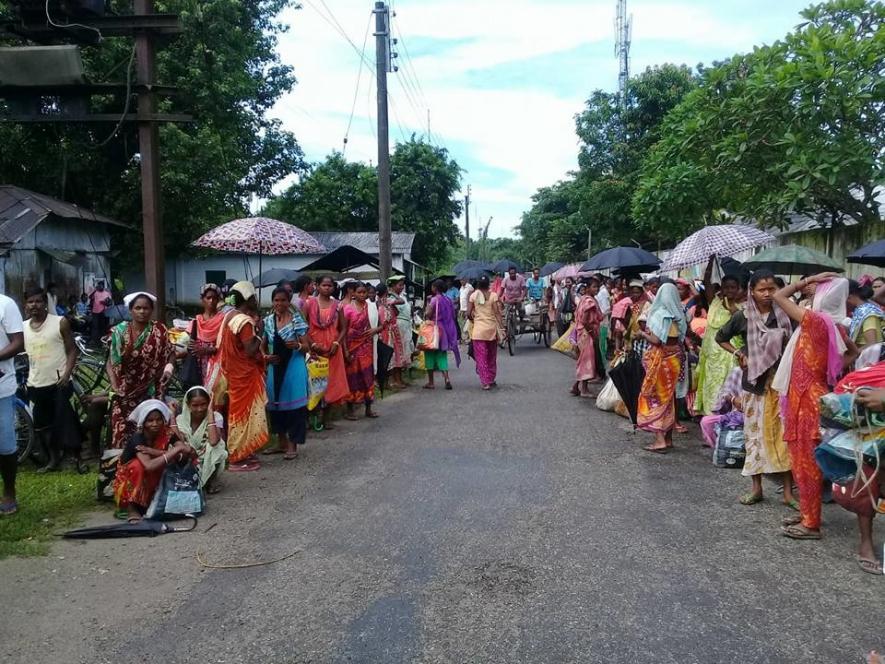Tea Garden Workers Break the Jinx of Identity and Communal Politics

Against an oppressive state machinery and vile attempts to diffuse the class movement in the North Bengal , tea garden workers took the lead in the state to deliver a blow to the aspirations of the ruling class, as their 72-hour strike for wages according to the Minimum Wages Act, reached a pinnacle. Cutting across political affiliations, about 29 tea workers’ unions has participated in the strike, by forging a strong movement under the banner of Joint Forum. The only exception has been the TMC-affiliated unions, which refused to side with the workers from the districts Darjeeling, Jalpaiguri, Alipurduar and Coochbihar.
Defying the police atrocities, manhandling, and constant barriers created by the tea garden owners, apathetic police, administration, and the ruling party hooligans lakhs of workers joined in the historic strike to ask for the basic minimum wage and the right to livelihood as guaranteed by the Indian Constitution.
“It is really amusing to see how the tea garden worker, being led by female workers, even in the absence of the leaders, are getting out of their tea gardens, enthused by the strike. Even though the gardens of the Darjeeling hill area have been left out of the ambit of the strike, the workers joined the strike, and are not going to work and picketing in garden areas, in support of their brethren in the Terai and Dooars. In many tea gardens, the workers themselves are taking the responsibility to establish contact with the leaders of the Joint Forum, which is heading the strike in the state,” said Jibesh Sarkar, district secretary, CPI(M), Darjeeling district unit.
It can be recalled that unlike in neighbouring Assam, the tea garden workers, who often fell for the ploy of the identity and community overtures before 2012, united after the TMC government failed to adhere to the demand of providing basic minimum wages. This years’ struggle has been a pathbreaker. The demands were legitimate: providing Rs 249 as daily wage for food and clothes, social security aspects like education, shelter, electricity and other necessities. CITU leader Jia Ul Alam, convener of the Joint Forum, told Prajasakti that all the 29 unions are adamant in getting their demands fulfilled. During the ongoing tripartite discussions, although the government representatives have buckled under the pressure, the workers’ unions have been constantly demanding that the present Rs 172 as daily wage is not in consonance with the rule of the land, and that Rs 249 should be the minimum wage.
“Not only this movement is based on the class approach, and concerns with their right to livelihood, this is an eye opener for all. Can you show a single instance after 2012 when violent clashes on the basis of identity, communal or sectarian hues have affected the area? Since the formation of the Joint Forum in 2012, these kind of clashes have become a history. Other clashes were due to political polarisation,” said Alam.
Get the latest reports & analysis with people's perspective on Protests, movements & deep analytical videos, discussions of the current affairs in your Telegram app. Subscribe to NewsClick's Telegram channel & get Real-Time updates on stories, as they get published on our website.
























